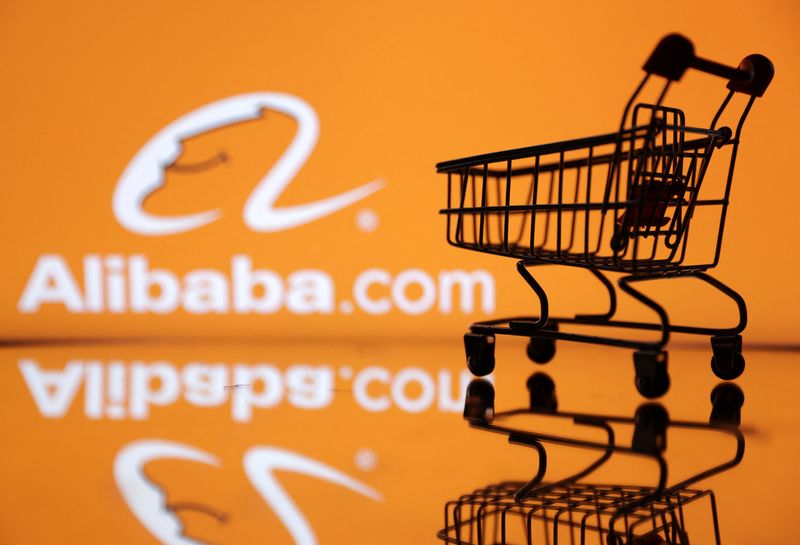By Akash Sriram and Casey Hall
(Reuters) - China's Alibaba (NYSE:BABA) Group Holding reported an 86% plunge in fourth-quarter profit on Tuesday primarily due to valuation changes from equity investments, pushing its U.S.-listed shares down 3% in premarket trading though revenue beat analysts' estimates.
The group's focus on low-cost goods in response to cautious consumer spending helped boost domestic e-commerce sales, it said.
Alibaba also announced it would revive a plan first floated in 2022 to upgrade its secondary listing in Hong Kong to a primary listing, while retaining its primary listing in New York. It aims to complete this dual-primary listing by August, hoping it will give Chinese investors more access to Alibaba shares.
The company has had a tumultuous year since announcing the biggest shake-up in its 25-year history in March last year, splitting into six units and refocusing on its core businesses, including domestic e-commerce.
Consumers in China have been spending carefully after the COVID-19 pandemic amid an economic slowdown and property slump.
Alibaba's net income in the March-quarter was 3.27 billion yuan ($452 million), compared with 23.52 billion yuan a year ago.
It reported revenue of 221.87 billion yuan in the three months ended March 31, compared with a consensus estimate of 219.66 billion yuan, according to LSEG data.
Alibaba's domestic commerce arm, Taobao and Tmall Group, grew 4% year-over-year with order volume increasing double-digits.
"Our strategies are working and we are returning to growth," CEO Eddie Wu told analysts.
Analysts expected strong growth from Alibaba's international digital commerce arm, given its investments in building global market share and appetite among global consumers for low-cost goods from China.
The segment delivered with 45% growth, compared with an expected 39% revenue rise, according to LSEG data. It also saw losses nearly double to 4.1 billion yuan ($567 million) from 2.2 billion a year ago as it invested heavily to remain price competitive and shorten delivery times.
The group's other "core" business, its cloud division, last month said it would cut prices by as much as 59% for products that are powered by its offshore data centers, amid rising competition to attract artificial intelligence software developers. According to the earnings report, AI-related revenue from external customers, a relatively new business, grew at triple-digits year-on-year.

($1 = 7.2339 Chinese yuan renminbi)
($1 = 7.2336 Chinese yuan renminbi)